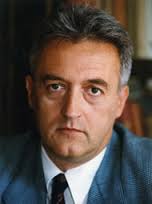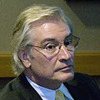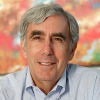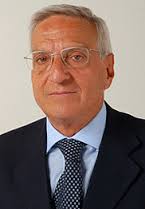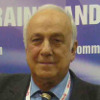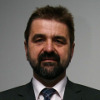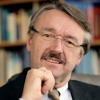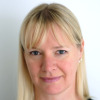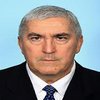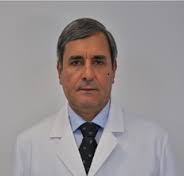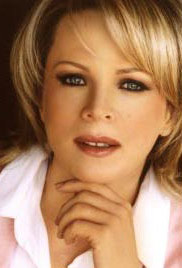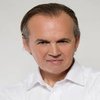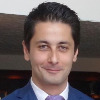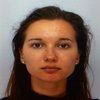| Click here to download the PDF version of the Newsletter | |||||||||||||||||||||||||||||||||||||||||||||||||||
 |
|||||||||||||||||||||||||||||||||||||||||||||||||||
| Message from the Presidency | |||||||||||||||||||||||||||||||||||||||||||||||||||
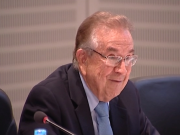 Heitor Gurgulino de Souza Heitor Gurgulino de SouzaWhen I was elected President of the World Academy of Art and Science at the end of last year, I told my colleagues: “It is indeed a great honour to be your President, but it is also a great challenge”, especially to provide continuity to the momentum given to our Academy by Ivo Šlaus and Garry Jacobs during the last few years. But together with the election of Winston Nagan as the new Chairman of our Board of Trustees, in fact we have been able to significantly enlarge and strengthen our collective leadership team. This is reflected in the reports in this newsletter. Much has been accomplished, but much more still needs to be done. For that we’ll need the collaboration of all our Fellows.  Library of Alexandria Library of AlexandriaThe first half of 2014 has been a period of unprecedented activity for the World Academy of Art and Science (WAAS), with many firsts to be noted. Our initiative to found the World University Consortium (WUC) fructified in February with the first meeting of WUC charter members at the Library of Alexandria, in Egypt, as reported in the March WUC newsletter. The establishment of WUC marks a major step in the effort of the Academy to reach out to other organizations and expand our network of collaborating institutions. 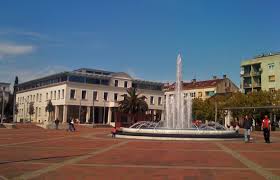 Podgorica PodgoricaWAAS also partnered with the Montenegrin Academy of Sciences & Arts on a stimulating, well-attended conference on “Transition to a New Society” held in Podgorica, Montenegro, in March. |
It also conducted three sessions at the Library of Alexandria’s conference on BioVision 2014 in April.  Baku BakuThis was followed by a landmark meeting in Baku, Azerbaijan on April 30th to promote collaboration between a dozen organizations on a new “Human-Centred Paradigm” as reported at length in this newsletter. 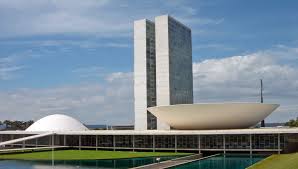 Brasilia BrasiliaIn early May, WAAS co-sponsored the Global Roundtable in Budapest and our first event in Latin America in many years, when we collaborated to host the XI International Colloquium on “Global Crisis and Changes of Paradigms: Current Issues”, from May 6-8th in Brasilia, Brazil. This newsletter also reports on the expansion of the WAAS network with the addition of four new WAAS Centres and Partners. I am also very pleased to welcome all new Fellows, Associated Fellows and Junior Fellows to the World Academy who were elected earlier this month and are introduced in this newsletter. The elections also endorsed important amendments to the Academy’s By-laws to improve the effectiveness of our dynamic management team. I specially wish to express my deep appreciation to our colleagues of the Executive Committee and the continuing support of our Board of Trustees to the Academy’s increasing level of activities. This year marks a critical landmark in our efforts to engage more of our talented, dedicated members in leadership roles in the Academy and we look forward to building ever-expanding circles of leadership, active involvement and full engagement in the years to come. Heitor Gurgulino de Souza |
||||||||||||||||||||||||||||||||||||||||||||||||||
|
|
|||||||||||||||||||||||||||||||||||||||||||||||||||
| INSIDE THIS ISSUE | |||||||||||||||||||||||||||||||||||||||||||||||||||
|
BAKU CONFERENCE MASA CONFERENCE BIOVISION CONFERENCE REPORT by L. Popovich XI INTERNATIONAL COLLOQUIUM IN BRASILIA YOUNG ENERGY FOR GLOBAL CHALLENGES by A. Krumberger |
WAAS-CERN PARTNERSHIP & COLLOQUIUM by H. Schopper SDEWES by N. Duić GLOBAL ROUNDTABLE by I. Šlaus NOMINATIONS & ELECTIONS REPORT by N. Neškovic & S. Bahia |
||||||||||||||||||||||||||||||||||||||||||||||||||
| Baku Conference Report | |||||||||||||||||||||||||||||||||||||||||||||||||||
| Baku Preparatory Meeting of New Paradigm Consortium Partners | |||||||||||||||||||||||||||||||||||||||||||||||||||
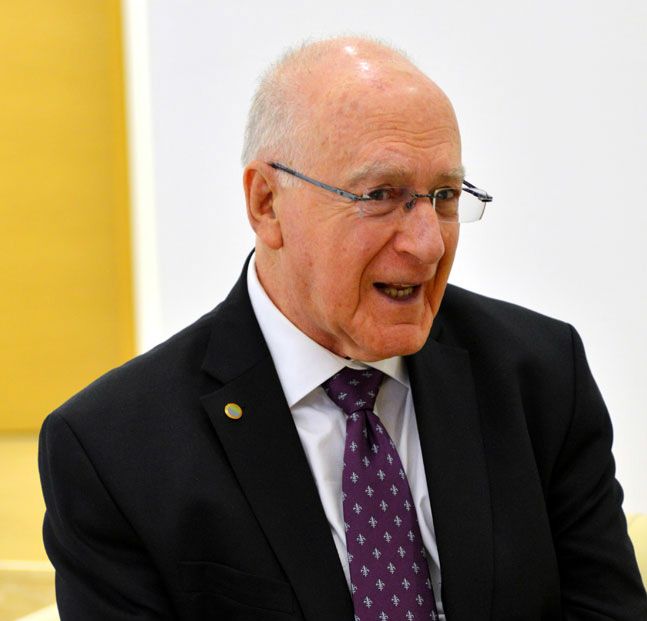 Ivo Šlaus Ivo ŠlausThe current socio-economic-political paradigm is unsustainable. It is destroying natural, human and social capitals. A change of course is essential. The call to change the current paradigm was initiated by Aurelio Peccei and the founding of the Club of Rome more than 40 years ago. It is now accepted by many leading institutions. On April 30, 2014, the World Academy together with the Nizami Ganjavi International Center (NGIC) organized a meeting in Baku of organizations working on solutions to the current global crisis in order to explore the possibility of forging a consortium of organizations to pool their complementary capabilities in a collaborative endeavor. In addition to WAAS and NGIC, the meeting included representatives of Institute for Cultural Diplomacy, Club of Madrid, Club of Rome, European Leadership Network, European Movement International, Future World Foundation, Green Cross International, Library of Alexandria, Partnership for Change, Pugwash and the World University Consortium. Other organizations may also be invited to join this endeavor. This meeting follows six other WAAS conferences on the need for a New Paradigm in Human Development conducted over the past 15 months in Trieste, Geneva, Alexandria, Washington, Ottawa and Podgorica and was followed by the Brasilia meeting in May 2014. |
The Club of Rome organized several conferences and actions, notably “Change the Course” on the anniversary of the Titanic disaster and a recent meeting in Castell de Castellet, Spain.
All analyses clearly demonstrate the need for a major paradigm change. The change has to encompass social, economic and political spheres. It has to be holistic. All aspects have to be approached simultaneously and promptly, and should be human-centered. A new paradigm maintains and preserves all valid aspects of the existing paradigm in the domain of their validity. These conclusions have been reaffirmed by participants at the Baku meeting. Participants at the Baku meeting unanimously stressed their readiness to continue to work together, forming a consortium/alliance of individuals and organizations (in case of organizations their respective leadership has to approve such an alliance) where each organization through its uniqueness and specialty will organize studies, research and activities aimed at formulating new paradigm and developing a strategy of achieving new socio-economic-political paradigm. Stakeholders will be actively involved in this strategic change process and contribute to the betterment of their local and national communities, to a renaissance of scientific and educational excellence and to fulfill their core values and mission. Ivo Šlaus |
||||||||||||||||||||||||||||||||||||||||||||||||||
| Reflections on the New Paradigm Project | |||||||||||||||||||||||||||||||||||||||||||||||||||
|
Following the Baku meeting on the New Paradigm Consortium, I would like to share some afterthoughts that hopefully can bring us closer to an understanding of the challenges and difficulties involved in our collaborative effort to formulate a New Paradigm of Human Development. Project Mission First, we need to define what we mean by the term ‘New Paradigm of Human Development’. Are we concerned exclusively with the resource limitations of the current economic model, “the collision with nature”? Or are we concerned with the broader issue of civilizational shifts? Is our objective to evolve a comprehensive road map that could provide a blueprint of steps and efforts needed to adapt to the global challenges or to develop new approaches to the problems of human development? One of the challenges we will face is how to avoid the usual dichotomies (technocratic versus humanistic, economic versus developmental, doomsday alarmism versus “let’s make more money out of crises”) in formulating the Mission. Framework The problem of resources constraints is obvious and shared by all the participants. Therefore I will leave it for the moment as the least controversial or “dispute charged”, and also because Club of Rome, WAAS and other networks have accumulated a lot of thinking on these matters. However if we assume that our civilisation is now experiencing a systemic crisis and entering into a new state, we perceive a pressing need for new concepts and new categories adequate to facing this extraordinary situation. We need to develop a new content-based vocabulary for the changing social context, for the new model of social life. Presently we lack appropriate terms and, therefore, are confined to existing models, artificial constructs and familiar concepts, such as the Post-industrial or Information Society, the End of History, the New Barbarianism, the Clash of Civilisations, Globalisation, etc. Changes in the world’s political, social and legal order, and the transformation of global “modus operandi” also need to be examined. We are currently in a transition period, in which the elements of a new, post-modern world historically coexist with the realities of the modern epoch. The system of international relations and international legal institutions is changing literally before our eyes. Numerous changes are occurring in the models of social, economic, and political activity, in projections of power and authority. The cultural landscape with its relevant “content structures” (democracy and liberalism for examples) is changing simultaneously. Human behavioural patterns and their matching mechanisms are acquiring new systemic qualities. Other components of change include mutations of the systems, forms and methods of governance, the birth of new and competing organisational structures for which we lack adequate and accepted definitions. Therefore, we are forced to use “content-meaningless” apophatical concepts such as “new organisations”. Or we are compelled to describe the situation using a multitude of prefixes such as “post”, “neo”, “anti”, “para”, “quasi”, and “meta” to point at the phenomenal novelty that unfortunately does not explain anything about their characteristics or about their essence. Or we resort to exotic neologisms such as “geo-economic content analysis”, “non-linear war”, “glocalisation”, “diasporic public spheres”, etc. Before launching practical work, we need to be clear about the frameworks we plan to use. Goals The recent “Environmental Leadership Award” was given to the Club of Rome “for decades of warnings of a deteriorating environment and limits to growth”. |
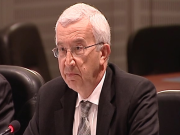 Alexander Likhotal Alexander LikhotalIs our goal today to “replicate” the success of the Limits to Growth as a scientific alert of the challenges we face at the new “level of development”? I doubt if this would be sufficient or effective, given the number of writings and documents available on this subject. Clearly the “new product” should add value to the public discourse and go further than that and provide “systemic solutions framework”. We have accumulated a lot of ideas on the economic transformations that are needed and some very promising possible recommendations and scenarios. This might look like the “lowest hanging fruit” intellectually. Unfortunately, picking the lowest hanging fruit sometimes could be counterproductive (let’s not forget Eve’s story). Seriously, I have never been convinced by Marxist materialism which is embedded in the famous dictum, “the being determines the consciousness”. Today social dynamics are not limited to the economic aspect of the approaching global revolution. Global changes are ultimately determined by a new organisation of individual and social consciousness. These modifications produce a new typology of social activity, political and economic practices, and so on. But first of all, such modifications result in the genesis of a new culture and its active “protagonists”. And here, unfortunately, there has been much less thinking. Therefore, the easy way – a small group drafting followed by a larger group draft upgrading – might not work. We will need first to invent the thinking that is needed and find ways to collect or generate it from within our ranks or outside our networks. Another aspect of the goals problem is the target. Shall we target decision-makers, legislators, general public, or academia? Clearly the choice will dictate the formats and instruments used. We might be expansive and adapt different elements of the project (scientific, outreach, action) to different targets with matching instruments (also requires clarification and definition). Suggestions This list of initiative mapping “musts” is clearly non-exhaustive, purely judgemental and subjective. Therefore I would like to conclude by suggesting several practical (organisational) proposals that could be helpful in the organisation of our work:
These steps in my opinion could help expedite the preparatory work and provide some structure for project implementation. Alexander Likhotal |
||||||||||||||||||||||||||||||||||||||||||||||||||
| An Agenda of Work for the New Paradigm Consortium | |||||||||||||||||||||||||||||||||||||||||||||||||||
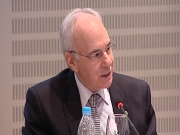 Garry Jacobs Garry JacobsThe current socio-economic-political paradigm is unsustainable. It is destroying natural, human and social capital. A change of course is essential. Rapid globalization, the accelerated pace of change in the global economic, political, technological, scientific, social and environmental spheres, and the growing complexity of the interactions and inter-dependencies between these spheres present unparalleled challenges to human security, welfare and well-being, which have thus far defied solution by piecemeal, sectoral strategies based on existing concepts and national level policy initiatives. Faulting current approaches has so far proven insufficient to bring about a significant change in thinking and action. But the potential upside of alternative futures has not been sufficiently documented or projected. A comprehensive strategy is needed to substantiate that practical and effective solutions are possible to successfully address these challenges, backed by quantified research and reliable measures of the desired outcomes. Effective action will require a wide range of expertise and a consortium of organizations with a common vision, shared values and complementary capabilities can achieve far more than the sum of the results that may issue from their separate individual initiative. The agenda of work for a comprehensive approach to paradigm change intended to encompass all the critical stages of “Leadership in Thought that Leads to Action” should include the following major components: 1. Values: A change in paradigm implies a change in the values that motivate our actions. Values offer essential wisdom regarding the conditions for survival, accomplishment and human fulfilment. An exploration of the values by which global society can overcome the present challenges and convert them into pathways to higher levels of human welfare and well-being is urgently needed. It should be combined with research into the process by which significant changes in civilizational values have been brought about in the past and the possible actions by which a value change can now be consciously effected. 2. Theoretical Framework: A new paradigm needs also to be based on a wider conception and more profound perception of the interdependence of activities, complexity of interactions, global scope and reach, and central role of human beings in determining their own future. Economic growth is a grossly inadequate notion for charting humanity’s future. Without a wider conception of human development and the social processes by which it is effected, we are likely to find ourselves largely confined by existing concepts to prevailing policy options. 3. Deep Drivers: Society evolves. Every paradigm change involves a movement of the society-at-large along a values-pathway driven by deeper social forces pressing to emerge on the surface. These emerging deep drivers provide the energy and effective power for a change in direction. The work of the consortium can immensely benefit from research to identify the underlying forces that are already preparing global society today for a change of paradigm.
|
4. Comprehensive Strategy: Participating organizations have already identified many essential institutional changes and policy initiatives applicable to different sectors and levels of global society. But thus far these represent separate pieces rather than a clear and coherent road map for the future. As all dimensions of global society contribute to the current dilemma, it is necessary to show how a comprehensive strategy will impact on both individual elements and their mutually dependent interactions and what would be the overall impact of implementation on human security, welfare and well-being.
5. Quantitative Analysis: Quantification is a powerful tool for effective communication. Quantification and modelling can provide compelling evidence capable of altering public opinion and garnering political will. Quantifying the potential benefits of a radical change of course will provide essential documentation to influence academia, public opinion, and decision-makers. 6. New Measures: A new paradigm will require more appropriate measures for monitoring human progress. Without new measures, we will remain trapped within the current framework which regards growth as synonymous with human development. Reconceptualizing progress as a movement toward higher levels of sustainable human welfare and security, rather than simply and crudely as a movement toward higher levels of unsustainable growth and consumption would constitute an important contribution when combined with a comprehensive strategy of how to achieve it and quantitative projections regarding the results. 7. Public Awareness & Support: These elements will only generate significant impact when they are projected to the public-at-large through effective strategies for communication, education, dissemination and debate. 8. Political Will: The goal of new theory, strategy, measures, quantitative analysis and public education must be to effect the functioning of public and private institutions as well as the formulation and implementation of policies by governments, the private sector and other institutions of civil society. Therefore a comprehensive approach must include a strategy for influencing public discourse and political action. 9. Plan on Action: In order to ensure the necessary grounding in reality and to achieve the concentrated intensity required for significant impact, all these elements need to be directed and translated into a plan of ACTION designed to effect real change at the practical level. 10. Goal: A plan that is intended to capture the attention, interest, and imagination of the global public will need to be both convincing and inspiring. Coherent theory, careful analysis and better measures can generate conviction. The inspiration can be generated by a compelling vision such as doubling the welfare of human beings on a sustainable basis. All these components are essential, complementary and mutually reinforcing. The strategy proposed will be to draw upon the excellent work already done by consortium members and others, reinforcing it by better theory, measures and quantitative research. Garry Jacobs |
||||||||||||||||||||||||||||||||||||||||||||||||||
|
|||||||||||||||||||||||||||||||||||||||||||||||||||
| Transition to a New Society | |||||||||||||||||||||||||||||||||||||||||||||||||||
| Report on the Second MASA Conference in Podgorica | |||||||||||||||||||||||||||||||||||||||||||||||||||
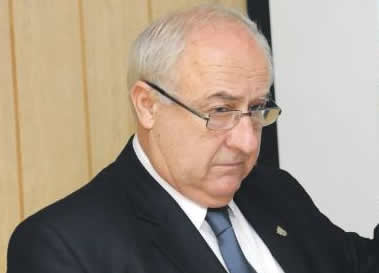 Momir Djurovic Momir DjurovicHuman society is currently undergoing changes of a nature unprecedent in magnitude and intensity. The outcome of this development will be a different type of civilization based mainly on knowledge, information, communication and most importantly, social mobility. One of the main difficulties in this transition is the growing gap between the accelerating pace of technological change and the slower pace of cultural, social and spiritual evolution. The changes in technologies, in turn, are linked to broader issues, including political and economic change, energy, natural resources, food supply, health, individual quality of life, and many others. The conference Transition to a New Society was conducted from 20-22 March 2014 in Podgorica, Montenegro, hosted and organized by Montenegrin Academy of Sciences and Arts in collaboration with the World Academy, the European Academy of Sciences and Arts (EASA), and the All European Academies (ALLEA). About 100 participants were drawn from more than 30 countries and the conference included 24 Fellows of WAAS. |
The conference focused on three major topics: Political and Economic Change, Environment, Energy and Sustainability and Humans and Machines. The opening session was addressed by the Prime Minister of Montenegro and the Presidents of WAAS, EASA, MASA, ALLEA, UIA (International Union of Academies). Presentations and discussion centered on questions related to the challenges posed by the emerging global context, the nature of the new paradigm that is needed, and strategies for bringing it. Papers examined issues related to the social and moral responsibility of scientists for building a new world, possible scenarios for transition, the role of education and human development, uncertainty and transition, socio-ecological business, ethics and new economy, identity and world law, religion and politics, climate change, the global environmental market, health, food, problems of urbanization and human habitats, energy, land use, robotics, technology, networking, mobility and the role of young scientists. Proceedings of the conference are being prepared for publication. Papers by WAAS Fellows can be found on the WAAS website. On March 22 a special session was organized to introduce the World University Consortium and discuss the role it can play in the development of new design concepts for a world-class system of higher education accessible to all human beings. Momir Djurovic |
||||||||||||||||||||||||||||||||||||||||||||||||||
Baku Conference Photos
|
|||||||||||||||||||||||||||||||||||||||||||||||||||
| BioVision Alexandria 2014 Report | |||||||||||||||||||||||||||||||||||||||||||||||||||
|
Following the meeting of the World University Consortium’s (WUC) charter members at Bibliotheca Alexandrina (Library of Alexandria) in February, Ismail Serageldin, Director of the Library, Director of WUC and WAAS Fellow, invited the World Academy and WUC to conduct three sessions at the 7th Biennial International BioVision Alexandria conference on April 7-9, 2014. A specific goal of BioVision Alexandria was to increase participation of developing countries and create significant roles for them in the global exchange of knowledge and best practices. The conference |
examined the latest and emerging scientific discoveries and inquired into ways they will shape our world and worldviews. The theme of BioVision 2014 was “New Life Sciences: The Next Decade.”
The conference gave prominent attention to the current revolution in online education and the leading-edge endeavor of WUC to promote accessible and affordable world-class higher education. A plenary session of the first day of the conference was co-organized by WUC and the Library and was entitled “The Coming Revolution in Higher Education.” |
||||||||||||||||||||||||||||||||||||||||||||||||||
|
|
|||||||||||||||||||||||||||||||||||||||||||||||||||
|
The WUC plenary session was followed by an interactive workshop in which students and faculty raised questions and shared their insights and concerns regarding the state of higher education today and the critical need for change. Azza El Kholy, Head of the Academic Research Sector of the Library of Alexandria, stressed the need for greater emphasis on Humanities, not only in the programs across the disciplines but also in any discussion of the future of research, knowledge and social advances. She emphasized the capacity of the Humanities to paint a bigger picture, create a more holistic approach, and infuse humanistic values into all disciplines and intellectual discourse. Rita Wilson, student at the English Department of the University of Alexandria, offered an impassioned perspective on the challenges of her generation’s education in Egypt. Alberto Zucconi addressed the importance of education for the development of the whole personality capable of making choices beneficial to both the individual and society. Mila Popovich proposed the notion of quantum learning, according to which the slightest shifts in the deepest levels of consciousness have dramatic external effects and consequences. A third session conducted by WAAS on “Consciousness according to Science, Philosophy, and Spirituality,” focused on the nature of human consciousness and the shift in consciousness necessary to address current challenges and invent the next stage of human development. Garry Jacobs |
depicted consciousness as the most remarkable phenomenon in the universe, examined different and potentially complementary conceptions of it, and contemplated the future of consciousness research. Mila Popovich spoke on the issues of quantum computation, artificial intelligence, and consciousness and the relationship among them. Alberto Zucconi concentrated on the development of the whole rounded individual being to ensure individual and collective well-being. The presentations elicited intense interest and enthusiastic interactions among an overflowing hall of participants.
The response of students and other participants confirmed the need for a metaframe of learning and knowledge that WUC plans to afford by creating comprehensive, overarching foundation courses which address the interrelated nature of all aspects of human and planetary ecology, the principle and process of accomplishment relevant to a trans-disciplinary science of society, and the study of universal values needed to support the next stage of human development. Ljudmila Popovich |
||||||||||||||||||||||||||||||||||||||||||||||||||
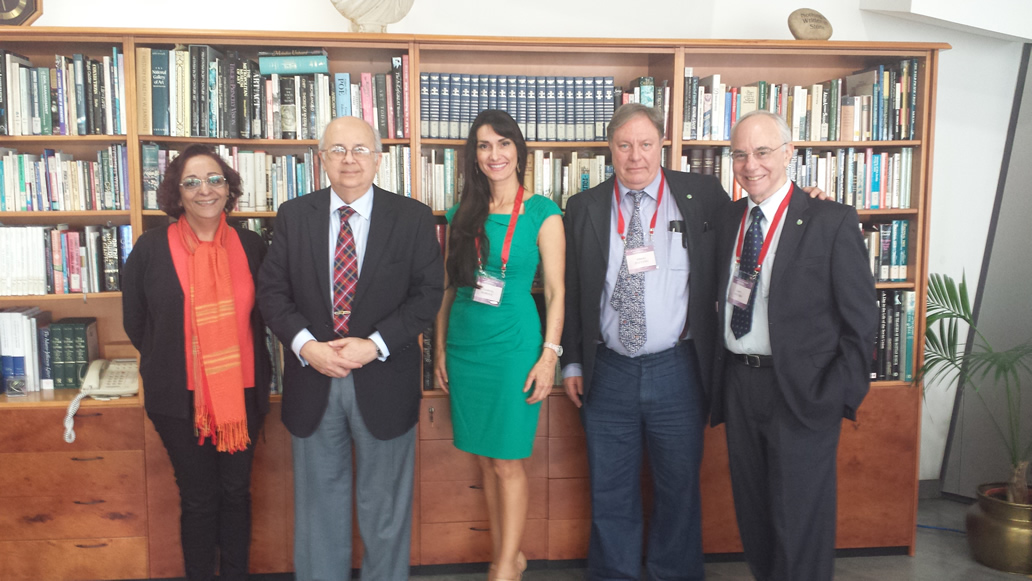
Azza El Kholy, Ismail Serageldin, Ljudmila Popovich, |
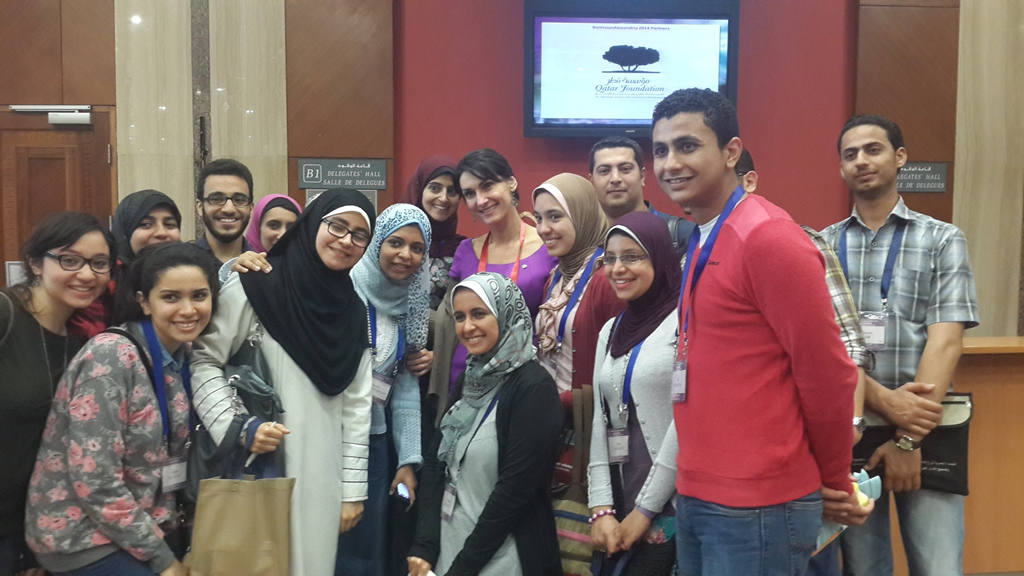 |
||||||||||||||||||||||||||||||||||||||||||||||||||
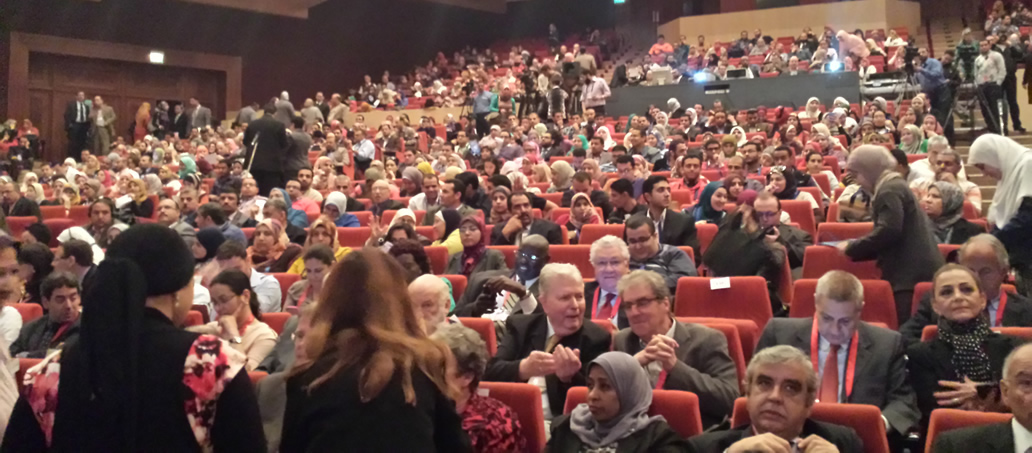 |
|||||||||||||||||||||||||||||||||||||||||||||||||||
| XI International Colloquium in Brasilia | |||||||||||||||||||||||||||||||||||||||||||||||||||
| Global Crises & Paradigm Changes | |||||||||||||||||||||||||||||||||||||||||||||||||||
 Joanílio Rodolpho Teixeira Joanílio Rodolpho TeixeiraOn the initiative of Joanílio Rodolpho Teixeira, Professor Emeritus at the University of Brasilia and Fellow of WAAS, the Academy was invited to participate in a high level economics conference in Brasilia on May 6-8, 2014 entitled “Global Crisis and Changes of Paradigms: Current Issues”. This was the 11th in a series of annual international economics conferences exploring alternative theory and strategy for addressing pressing global challenges. Economics has been primarily concerned with understanding how economies work in order to discover which policies could make them work better. Growth, distribution, inflation, trade and employment have been some of the main concerns of macroeconomic theories. Yet few economists foresaw the scale of the financial and economic crisis from 2008, and few have been able to propose alternative economic paradigms to respond to it. The main objective of the Colloquium was to provide a platform for a productive exchange of ideas, theories and policies that might identify possible paradigm shifts and better informed policies for both national and global governance. The event was sponsored by WAAS together with the University of Brasilia (UnB), the National Council for Scientific and Technological Development (CNPq), the Rio Branco Institute (Brazilian Ministry of External Relations), and the International Celso Furtado Center for Development Policies. WAAS President Heitor Gurgulino de Souza provided an overview of the work of the Academy related to the current global crisis. Winston Nagan, Chair of the Board of Trustees, explored the conceptual underpinnings, legal and human rights implications of the current neo-liberal paradigm. |
WAAS CEO Garry Jacobs provided an overview of the Academy’s New Paradigm initiative, highlighting the need for a comprehensive, trans-disciplinary, human-centered approach to human development, the urgent need for new theory and catalytic strategies that could be applied to accelerate the transition toward a more prosperous, equitable, and sustainable paradigm.
A special session on the World Academy was conducted at Conselho Nacional de Desenvolvimento Científico e Tecnológico (CNPq) on May 8 and inaugurated by Glaucius Oliva, President of CNPq, and Heitor Gurgulino de Souza. Winston Nagan provided a historical perspective on the origins and mission of the World Academy. He traced the Academy’s commitment to the social responsibility of science back to the invention and first use of nuclear weapons, which raised serious concerns among the founders of WAAS regarding the social implications and policy consequences of knowledge. 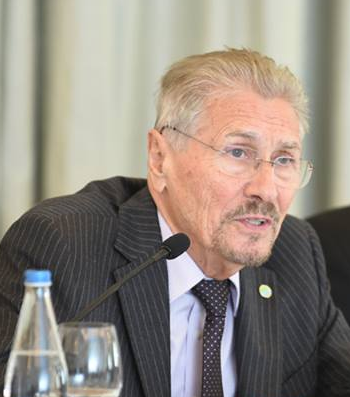 Emil Constantinescu Emil ConstantinescuEmil Constantinescu, Former President of Romania who heads the Academy’s new center in Romania and its Euro-Mediterranean Initiative, examined the importance of fostering close relationships between the university and society. Garry Jacobs introduced the work of the World University Consortium to promote a global initiative to make world-class, affordable, socially-relevant higher education available to humanity. Joanílio Rodolpho Teixeira Heitor Gurgulino de Souza |
||||||||||||||||||||||||||||||||||||||||||||||||||
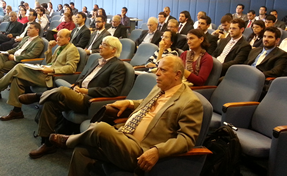 |
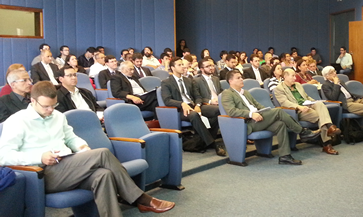 |
||||||||||||||||||||||||||||||||||||||||||||||||||
| Reflections on the Founding and Mission of WAAS | |||||||||||||||||||||||||||||||||||||||||||||||||||
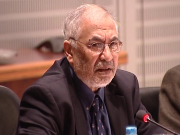 Winston Nagan Winston NaganThe World Academy of Art & Science was founded in 1960. Its first President, Lord John Boyd Orr of Scotland, was also the first Director-General of the FAO. Today the Academy has more than 700 Fellows from around the world who have been elected on the basis of high professional distinction, a distinctive and comprehensive global vision, and qualities of leadership important for engaging in programs and activities of the Academy. The Academy is distinctive in that it has an explicit emphasis on the social consequences of knowledge generation and, more importantly, the policy implications of knowledge that is produced. This mandate is further clarified by the motto of the Academy that stresses the idea that leadership in thought leads to leadership in action. The idea of founding an academy with this emphasis percolated in the minds of some of the world’s most eminent thinkers and scientists for many years. This line of thinking was triggered by two distinguished physicists, E. Fermi and L. Szilard, visiting Albert Einstein in the later part of 1939. They came to brief Einstein on the state of nuclear physics and, in particular, the speed with which it might be possible to produce a nuclear chain reaction in a large mass of uranium, capable of splitting the atom and producing unheard of volumes of energy. The potential destructiveness of these developments was by itself a matter of serious concern, but even more critically, the speed of German advances under Hitler made the matter a top security priority. Einstein wrote his famous letter to US President Roosevelt on August 2, 1939, notifying him of these scientific developments and recommending that the United States make the development of nuclear advances a major priority. Einstein was a pacifist and was a refugee from Nazi Germany. This must have been a difficult letter to write. His letter triggered the executive’s commitment to the development of nuclear science from a national security perspective. The Manhattan Project was launched with Robert Oppenheimer as the lead scientist. Control of the facility was put in the hands of a national security operative, General Groves. The project produced the first two atomic bombs in history. The decision to use the bomb did not concern itself with the views of the scientists as such. However, the detonation of the bombs over Hiroshima and Nagasaki demonstrated that the destructive capacity of these weapons exceeded scientific predictions. Moreover, these weapons of mass destruction put world politics into a new age of weapon systems of universal lethality. Robert Oppenheimer was not obviously a pacifist, but he quickly grasped the moral challenge posed by the atomic bomb. A famous quote on witnessing the first nuclear detonation is from the Bhagavad Gita: “The Lord said: Time [death] I am, the destroyer of the worlds, who has come to annihilate everyone. Even without your taking part all those arrayed in the [two] opposing ranks will be slain!” It became obvious to Oppenheimer that trying to influence further developments on ethical or moral grounds was going to be fiercely contested. Edward Teller was another physicist engaged in nuclear developments. Teller was a brilliant scientist and an extremely |
political ideologue. Teller’s great ambition was to build a super weapon – the hydrogen bomb. In his confrontation with Oppenheimer, Teller won and Oppenheimer was deprived of his security clearance. This background and the profound challenges generated by unleashing the nuclear genii motivated eminent men such as Einstein, Oppenheimer, Rotblat, Russell and others to affirm the social responsibility of scientists and other academic researchers for the knowledge they generated and its consequences for humanity. They felt compelled to consider the impact of scientific advances, even though scientists were largely excluded from the political discourse and decisions governing the application of that knowledge. The challenge as Einstein saw it was that “the creations of our mind shall be a blessing and not a curse to mankind.”
Informal networking among major scientists and intellectuals over this issue led to the First International Conference on Science and Human Welfare in 1956. One of the results of this conference was an agreement among the participants to form a world academic international preparative committee. From this development, WAAS (World Academy of Art & Science) was founded in 1960. The charter members of the Academy were a veritable global Who’s Who of scientific, philosophical and social scientific distinction. The Academy aspired for a sense of communication regardless of national or ideological boundaries. Its objective was to be the world’s first informal university and its mission was the improvement of the human prospect. The Academy today remains deeply committed to world peace and universal human security, including the concern of its founders regarding the control, regulation, and ultimate abolition of weapons of mass destruction. But in the wider context of the multiple political, economic, social and ecological challenges confronting humanity today, WAAS has set itself the challenge of (a) deeper understanding of the current paradigm that shapes thinking, institutions, policies and the prevailing world order and (b) giving serious thought to the formulation of a new human-centered paradigm for development and global governance. Issues related to the need for a new paradigm have been explored at recent WAAS conferences at Trieste, the UN in Geneva, Library of Alexandria, Washington DC, Ottawa, UC Berkeley, Podgorica, and most recently, Baku. The project seeks a deeper understanding of the place of the individual human being in the global social process and the implications of fundamental human rights when applied on a global basis. Special emphasis is being placed on new paradigm in global education as an essential condition for effectively addressing global challenges, which has led to the founding of the World University Consortium. Recognizing the enormous scope, complexity and importance of these issues, WAAS is actively promoting close collaboration with other leading organizations including CERN, Club of Madrid, Club of Rome, European Leadership Network, European Movement International, Green Cross International, Institute for Cultural Diplomacy, Library of Alexandria, Mother’s Service Society, Partnership for Change and other organizations in an effort to leverage our complementary capabilities in pursuit of common goals. Winston Nagan |
||||||||||||||||||||||||||||||||||||||||||||||||||
| Young Energy for Global Challenges | |||||||||||||||||||||||||||||||||||||||||||||||||||
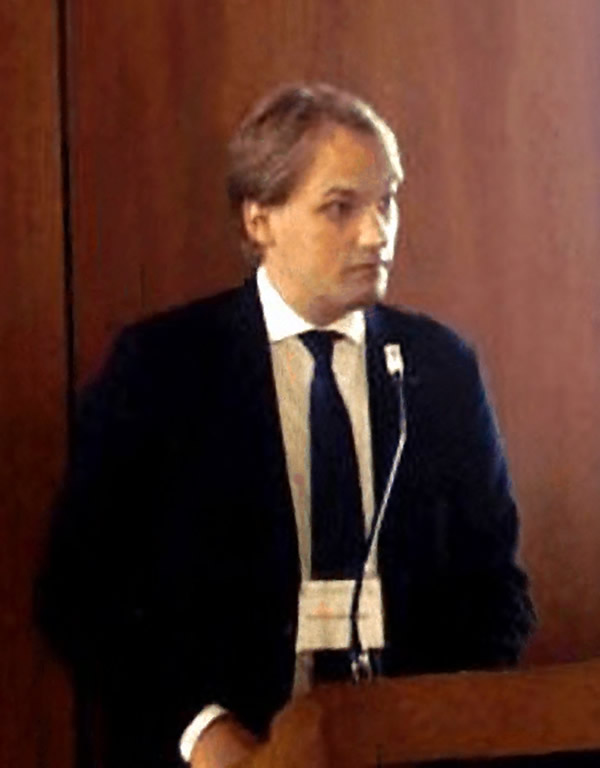 An Krumberger An KrumbergerDecision makers across the world – those who can in fact change the course for the better or worse – rely on information when making decisions and are often provided with very different possible solutions for the same challenge. It is up to them to decide which path to choose. One could argue it is up to the rest of the world to provide them with a range of best possible solutions. One of these solutions should be coming from the young generation, providing the decision makers with fresh ideas on problem solving. The report could be produced by a group of young, motivated future leaders and thinkers gathering to discuss world issues. The topics could be coming from well-established world-class organizations with extensive knowledge base from their members. Instead of one sponsoring organization there could be a consortium of founding member organizations. This would inject the founding member organizations with new energy and fresh ideas. Such meetings should aim to provide open space to young leaders coming from different parts of the world and from different backgrounds to freely and openly discuss possible solutions to the world’s greatest challenges. The solutions/scenarios can then be transmitted to decision makers in politics, business, international organizations and other entities. To achieve the goal of reaching the decision makers, the group could have a pool of advisors coming from founding organizations. They could be involved in the entire process of the meetings. The advisors could help prepare the necessary materials and brief the members before each meeting so that the discussions can be based on the most recent and accurate information for each specific area. After the meeting, a special session can be held with the advisors while founding organizations could present a plan for distributing the message to the decision makers using the organizations’ resources. |
After each meeting a report would be produced in short and long version. The short (one-page) version can be used for distribution to the decision makers, while the long version can be made available to the founding organizations for further discussions.
The idea could start with a small group of about 10 people who gather at a one-day forum to produce their first report and determine the best organizational structure for future meetings. Participants should be leaders in their communities, organizations, countries or fields of action, aged between 20 and 40, drawn from different geographical areas and fields of expertise with a shared interest in global challenges and problem solving. They should be people who have already contributed in work or personal life to addressing global issues, have a multidisciplinary perspective, have already achieved impact with their ideas, people with energy, commitment and high ethical and moral standards. Recommendations for membership could come from charter member organizations. An Krumberger |
||||||||||||||||||||||||||||||||||||||||||||||||||
| CERN and WAAS Agree to Cooperate | |||||||||||||||||||||||||||||||||||||||||||||||||||
|
On 13 March 2014, Rolf Heuer, the Director-General of CERN and Garry Jacobs, the Chief Executive Officer of WAAS, signed an MOU (in the presence of Herwig Schopper and Maurizio Bona) providing the basis for future cooperation between the two organizations. CERN, the European Particle Physics Laboratory, celebrating its 60th anniversary this year, has become the focal point for more than 10,000 visiting scientists and engineers from all over the world. Since its founding, it not only had the task of supporting scientific cooperation but to promote ‘science for peace’. WAAS, an international think tank established in 1960, is the only global academy assuring common endeavour to address the challenges and opportunities facing global humanity today and supporting worldwide peaceful scientific cooperation. In the MOU the two organisations agreed to provide intellectual and technical support for initiatives taken by one institution or the other, and to participate in providing and receiving information resulting from the progress and studies conducted by the other. Some fields have been identified for special emphasis in the development of collaboration between the two institutions. Among them one finds the establishment of interlinks between the natural and human sciences, a better access of women to science, the promotion of scientific and technological education and the creation of scientific networks, with particular focus on developing countries and on youth. The two institutions will collaborate to evolve strategies aimed at expanding the global delivery system for higher education in order to address the rapidly increasing demand and urgent need to improve the quality and relevance of higher education and lifelong education to social life. Informal contacts between the two institutions had been established before the MOU was signed. CERN was a co-sponsor of the international conference on “Opportunities & Challenges for the 21st Century: Need for a New Paradigm” organised by the United Nations in Geneva and World Academy on June 3, 2013, |
From left to right: Maurizio Bona, Rolf Heuer, which offered K. J. Tokayev, the former Director-General of the United Nations Office in Geneva, Ivo Šlaus, the Honorary President of WAAS, and Rolf Heuer, the Director-General of CERN, the opportunity to explain the intentions of the respective institutions in public talks and to establish first contacts. These were followed later by informal visits of Ivo Šlaus and Garry Jacobs to CERN initiated by Herwig Schopper leading finally to the signing of the MOU. As a first result of the agreement of cooperation, a colloquium talk by Garry Jacobs was organised at CERN titled ‘Insights from the physical sciences and their relevance to the evolution of social science’ on 13 March 2014. Herwig Schopper |
||||||||||||||||||||||||||||||||||||||||||||||||||
|
CERN COLLOQUIUM The objective of presentation by Garry Jacobs was to explore the potential for collaboration between the physical and social sciences to arrive at a more cohesive and effective framework by exploring a series of questions, including –
The Academy hopes that this meeting will lead to on-going collaboration with CERN on this project. Click here to download the Powerpoint Presentation Click here to read the MOU between CERN & WAAS |
|||||||||||||||||||||||||||||||||||||||||||||||||||
| Upcoming Events | |||||||||||||||||||||||||||||||||||||||||||||||||||
|
WUC partners with IAUP at the XVII Triennial Conference in Yokohama International Conference on the Future of Education WUC invited to Moscow for Green Cross International conference on Education and Environment World University Consortium has been invited to conduct a session at the 20th International Conference “Prospects of Ecological Education for Sustainable Development” on 26-27 June 2014 organized by Green Cross International in Moscow. International cooperation in the field of education can be a powerful catalyst for achieving sustainability, especially in developing countries with expanding economies. The purpose of the conference is to work up the recommendations in administrative, methodological, culturological, learning and teaching problem solving in the field of Ecological Education for Sustainable Development with reference to the background of national and international experience. Garry Jacobs, Alexander Likhotal, Ivo Šlaus and Alberto Zucconi will represent WUC and explore strategies to enhance the scope and effectiveness of environmental education. WAAS is partnering with the Government of Bosnia & Herzegovina for conference on Employment Theme: STRATEGIES TO GENERATE RAPID RECOVERY AND FULL EMPLOYMENT IN BOSNIA & HERZEGOVINALocation: Sarajevo This conference will launch a joint WAAS – BiH study to identify innovative strategies to accelerate employment, self-employment and entrepreneurship by strategies to enhance human capital and social capital, including identification of opportunities, catalytic initiatives, improved networking and management, streamlined decision-making, enhancement in personal motivation, institutional linkages, innovative financing strategies, education and vocational training. Deputy Prime Minister of BiH and WAAS Fellow Zlatko Lagumdzija is organizing the project. |
|||||||||||||||||||||||||||||||||||||||||||||||||||
| WAAS-WUC Courses at IUC | |||||||||||||||||||||||||||||||||||||||||||||||||||
|
WAAS & WUC to offer trans-disciplinary foundation courses at IUC, Dubrovnik this Fall
The World Academy and the World University Consortium are organizing two graduate level courses at Inter-University Centre, Dubrovnik in Fall 2014. Duration: 25 – 30 August 2014 This trans-disciplinary inquiry searches for underlying principles governing the interaction between the individual, society and life for insights into the process that governs human initiatives and their consequences. Drawing on research in management, literature, biography, history, psychology and philosophy, it looks for common subjective factors and processes governing different human accomplishment, including the role of aspiration, comprehension, perception, energy, organization, personality formation, attitudes, skills & values. Toward an Integrated Science of Society for a New Paradigm Duration: 1 – 6 September 2014 The accelerated pace of social change, increasing complexity of interactions between fields and globalization of interactions present humanity with a nexus of challenging problems – political, economic, legal, social, cultural, psychological and ecological – that defy comprehension and resolution by a piecemeal, sectoral approach based on the prevailing principles of social science. Efforts to combine and integrate perspectives from different disciplines are limited by the absence of a common conceptual framework. This six-day trans-disciplinary course will explore common principles and processes governing survival, growth, development, evolution and social revolution applicable to all fields, including awareness, social energy, organization, networks, language, law, technology, money, complexity, power, culture, values, consciousness and ways of knowing. |
|||||||||||||||||||||||||||||||||||||||||||||||||||
|
Course Registration
Participants are responsible for their own travel and stay in Dubrovnik. IUC course registration fees is €40 per course payable by July 31, 2014. IUC may provide some assistance in locating suitable accommodations. Click here for more information about IUC. For more information, contact [email protected] |
|||||||||||||||||||||||||||||||||||||||||||||||||||
| New Partners | |||||||||||||||||||||||||||||||||||||||||||||||||||
WAAS welcomes new partners to its expanding network
|
|||||||||||||||||||||||||||||||||||||||||||||||||||
| SDEWES | |||||||||||||||||||||||||||||||||||||||||||||||||||
|
SDEWES joins WAAS as a focal point for research on Sustainable Development
|
|||||||||||||||||||||||||||||||||||||||||||||||||||
| Global Round Table: EU Quo Vadis? | |||||||||||||||||||||||||||||||||||||||||||||||||||
|
The Global Round Table (GRT) on May 8-9, 2014 in Budapest was devoted to the European Parliamentary elections from May 22-25, 2014. This event was organized by GRT in association with WAAS, The Institute for National Strategy in Hungary, Hungarian National Commission for UNESCO, The European Movement in Split and the Pázmány Peter Catholic University. It was attended by about 20 distinguished persons, including János Martonyi, Hungary’s Minister of Foreign Affairs, Vaira Vike Freiberga, President of Club de Madrid and former President of Latvia, Erhard Busek, former Vice Chancellor of Austria, |
Ernst Ulrich von Weizsäcker, co-President of the Club of Rome and WAAS Fellow, and Ivo Šlaus, Honorary President of WAAS.
This is a crucial moment in European history. The Round Table issued a call for change, asking citizens of the EU to get informed and involved in the parliamentary elections and discussed a set of recommendations to be submitted to the newly elected European Parliament. Ivo Šlaus |
||||||||||||||||||||||||||||||||||||||||||||||||||
| Nominations & Elections Report | |||||||||||||||||||||||||||||||||||||||||||||||||||
|
Report on the Spring 2014 WAAS Election
|
|||||||||||||||||||||||||||||||||||||||||||||||||||
| Nomination & Election of New Fellows | |||||||||||||||||||||||||||||||||||||||||||||||||||
|
The main criteria for election as a Fellow of the World Academy of Art and Science are: (1) distinction or leadership in his or her profession, (2) interdisciplinary accomplishments or interests, (3) record of public service, and (4) global perspective or demonstrated commitment to issues of global importance. Associate Fellows of the Academy are selected from among individuals who are involved in the Academy’s activities or show potential for future election as a Fellow. Junior Fellows are selected from among individuals with strong commitment and leadership promise who provide services that advance the Academy’s work. In addition to the above specified criteria, a candidate for membership in the Academy must agree to participate actively in the Academy’s activities and indicate the present and/or future potential WAAS project(s) in which he or she would like to be actively involved. An analysis of membership in the Academy reveals that the following regions are underrepresented in our membership: Asia, South America, Africa and the Middle East. Women and scholars from the arts and humanities are also underrepresented. The Nominations and Evaluations Committee of the Academy now consists of two subcommittees. The Nominations Subcommittee, which has nine members, is tasked with nominating candidates |
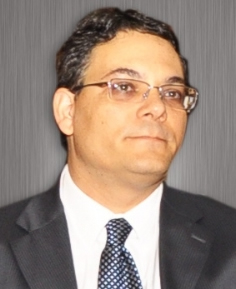 Saulo Bahia Saulo Bahiafor election from the underrepresented regions and fields of interest giving clear preference to females. The activities of this body are intended to complement the regular nomination process, not to prevent Fellows from nominating candidates for membership as in the past. The evaluation of candidates for Fellowship is the task of the Evaluation Subcommittee, which has six members. The results of evaluation are forwarded to the Board of Trustees, which votes to decide whether each nominee is qualified to be placed on the ballot for election by Fellows. New Fellows are elected by a 2/3rds majority of those voting. According to the Academy’s Bylaws, an extraordinary scientist or artist fulfilling the above specified criterion (1) for becoming a Fellow or an extraordinary politic leader fulfilling the above specified criterion (3) may be directly elected as a Fellow by the Board of Trustees independently of the Nominations and Evaluations Committee and the Plenum. New Associate Fellows are evaluated and elected by the Board of Trustees for a period of four years. New Junior Fellows are evaluated and elected by the Executive Committee for a period of two years. Nebojša Neškovic & Saulo Bahia |
||||||||||||||||||||||||||||||||||||||||||||||||||
| New Fellows | |||||||||||||||||||||||||||||||||||||||||||||||||||
|
Spring Elections 2014
|
|||||||||||||||||||||||||||||||||||||||||||||||||||
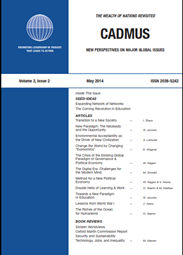 Cadmus is a journal for fresh thinking and new perspectives that integrate knowledge from all fields of science, art and humanities to address real-life issues, inform policy and decisionmaking, and enhance our collective response to the challenges and opportunities facing the world today. Click here to read the current issue. Cadmus is a journal for fresh thinking and new perspectives that integrate knowledge from all fields of science, art and humanities to address real-life issues, inform policy and decisionmaking, and enhance our collective response to the challenges and opportunities facing the world today. Click here to read the current issue. |
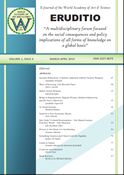 Eruditio, the e-journal of WAAS, complements & enhances the Academy’s focus on global perspectives in the generation of knowledge from all fields of legitimate inquiry. It also mirrors the Academy’s specific focus and mandate which is to consider the social consequences and policy implications of knowledge in the broadest sense. Click here to read the current issue. Eruditio, the e-journal of WAAS, complements & enhances the Academy’s focus on global perspectives in the generation of knowledge from all fields of legitimate inquiry. It also mirrors the Academy’s specific focus and mandate which is to consider the social consequences and policy implications of knowledge in the broadest sense. Click here to read the current issue. |
||||||||||||||||||||||||||||||||||||||||||||||||||

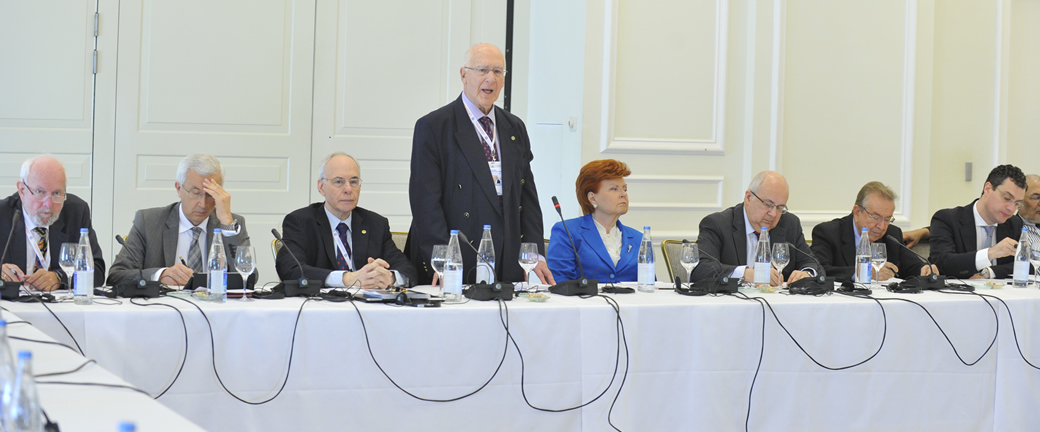
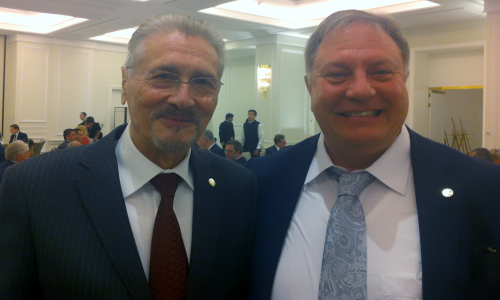
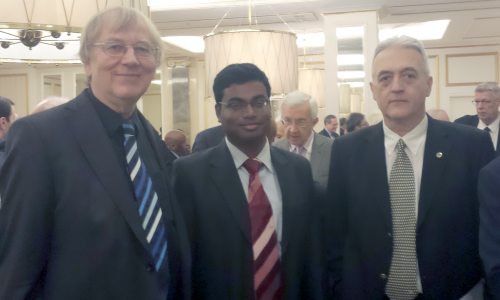
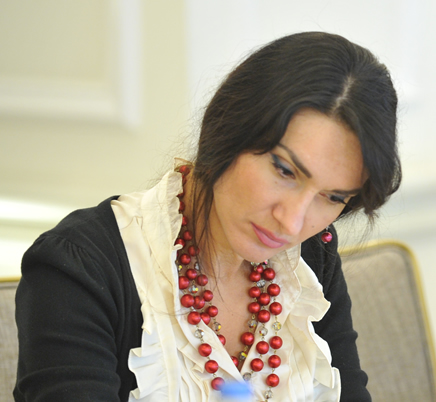
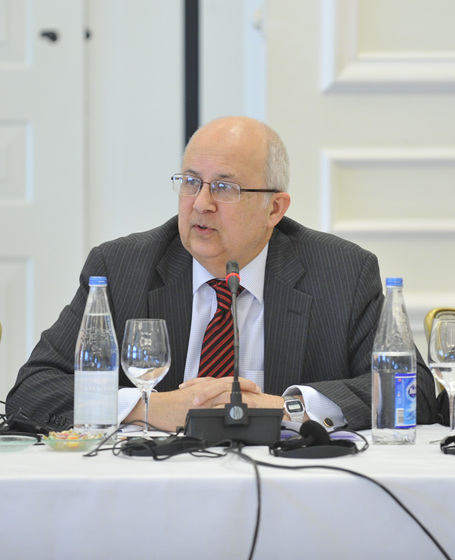
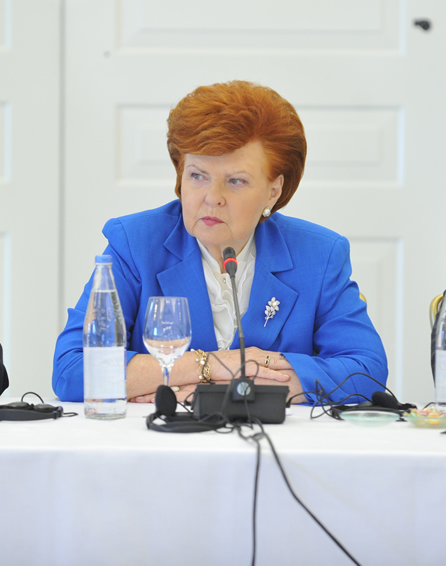
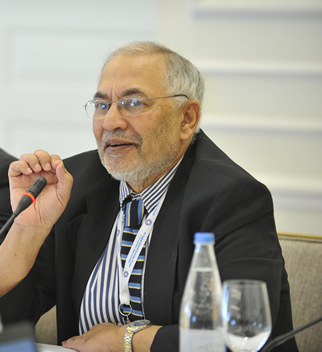
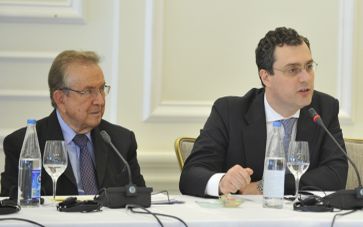
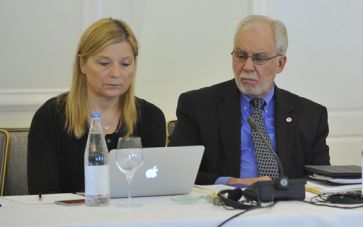
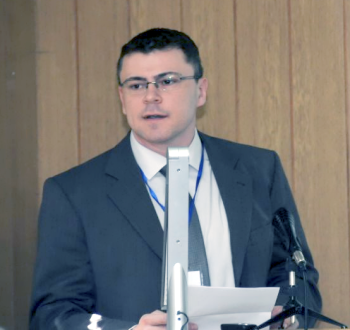
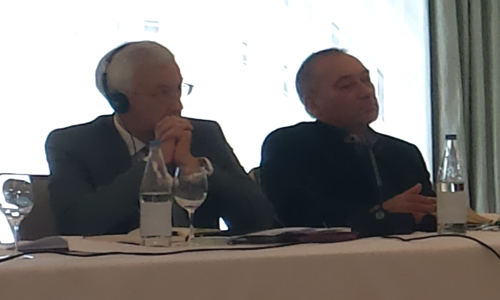
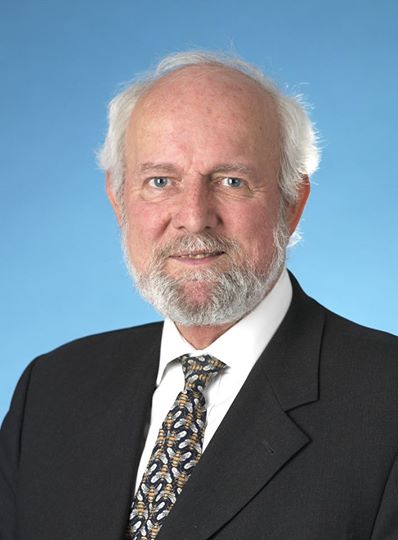
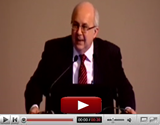
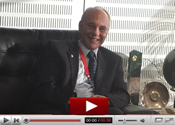
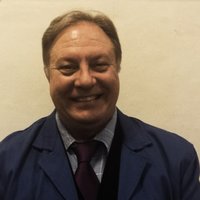 Alberto Zucconi
Alberto Zucconi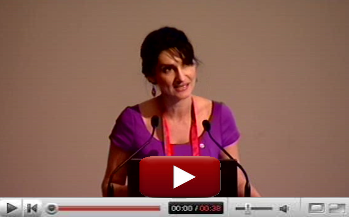
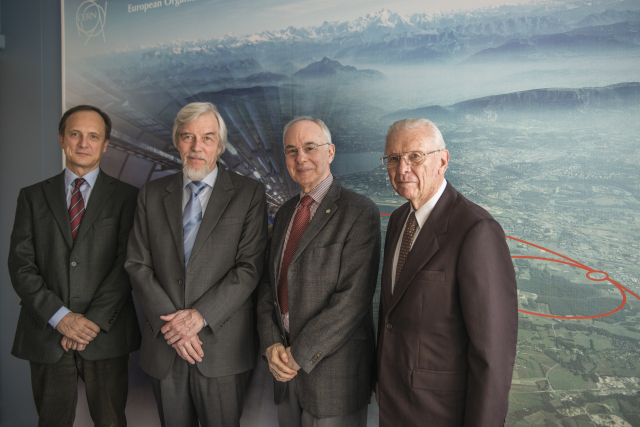
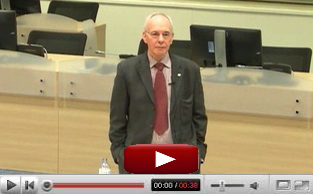
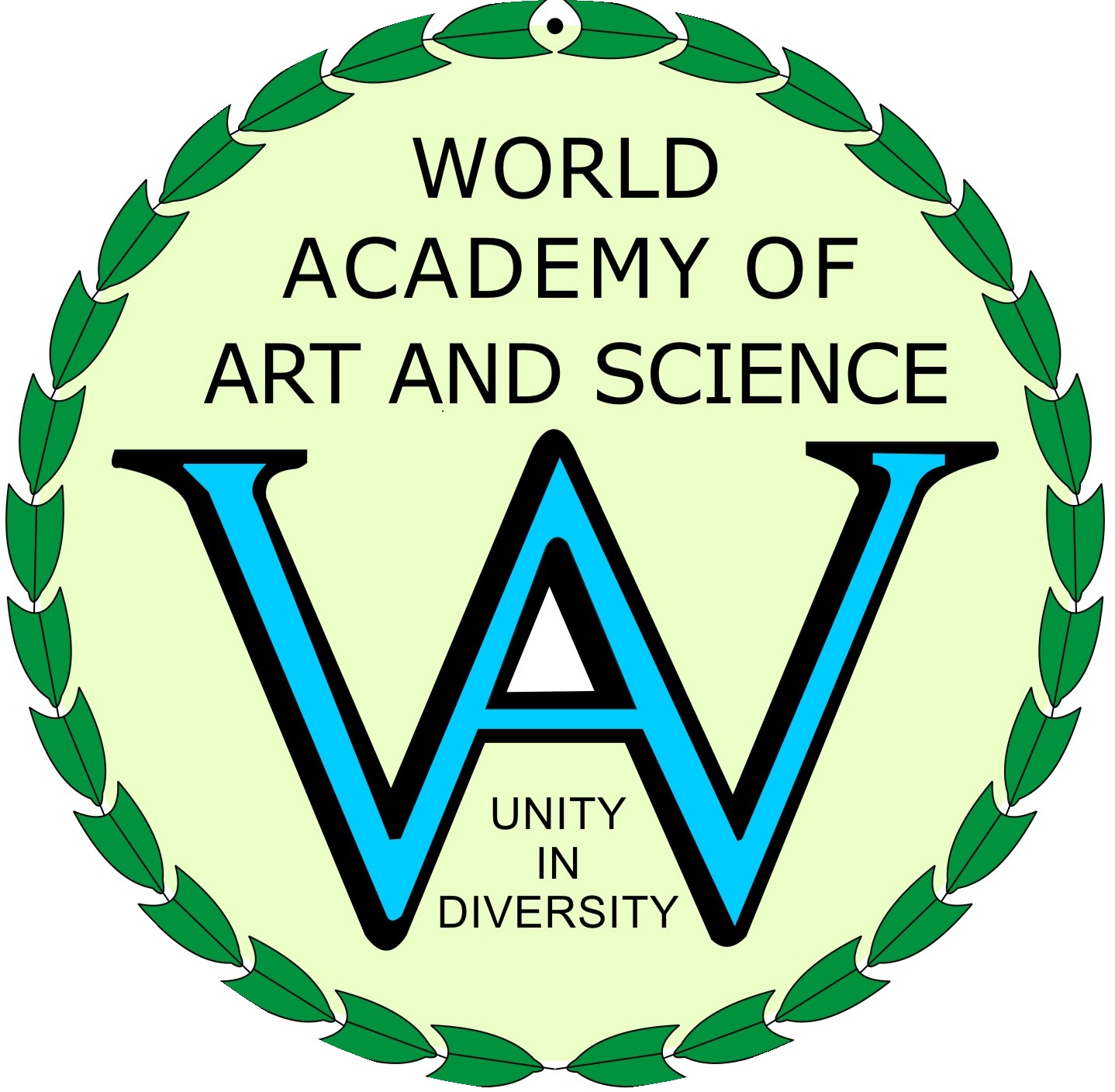


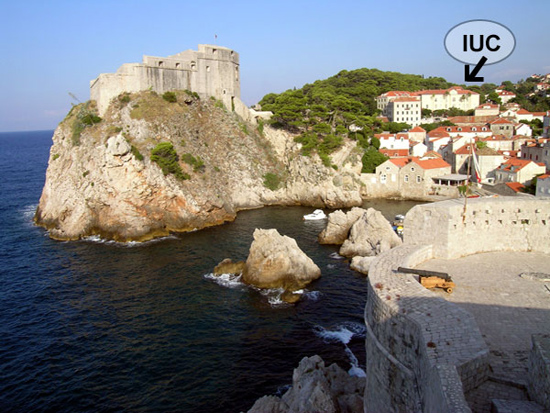
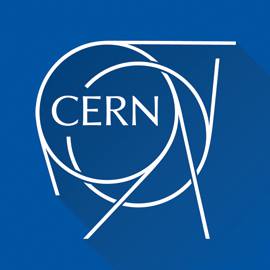
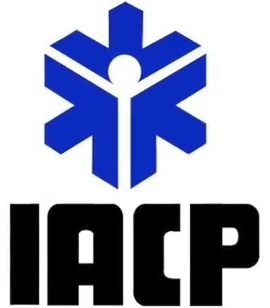
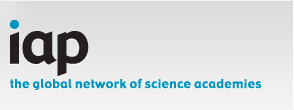
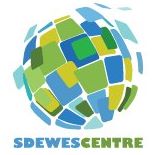
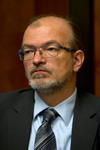 Neven Duić
Neven Duić